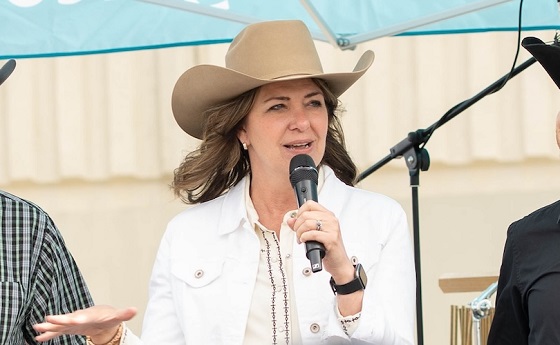Alberta
Alberta based Atlas BiotechnologiesTM invests in leading Oncology Biotech research firm, Flavocure.

Alberta based Atlas BiotechnologiesTM invests in leading Oncology Biotech research firm, Flavocure.
November 06, 2018- Edmonton, Alberta- ?Atlas Biotechnologies Inc. is pleased to announce a 20% investment in Flavocure Biotech, which has an impressive pipeline of oncology research. Flavocure has a patent pending on two therapeutic molecules, which use cannabis flavonoid derivatives in the treatment of three aggressive forms of cancer: AML (Acute Myeloid Leukemia), pancreatic, and glioblastoma (brain) cancer.
“Flavocure is an excellent fit for Atlas Biotechnologies. Our business philosophy is built around curing disease and illness using cannabis derivatives. Flavocure’s FDA orphan drug designation for the treatment of Acute Myeloid Leukemia, combined with their attractive oncology pipeline, made them an obvious choice for collaboration. We intend to jointly develop specialized cannabis cultivars to further unlock the potential of targeted flavonoids in medical research”, said Sheldon Croome, Atlas Biotechnologies CEO.
Flavocure is based in Maryland, USA and collaborates with some of the world’s most prestigious cancer research institutions. The United States Food and Drug Administration (FDA) has approved one of Flavocure’s two proposed therapeutics, Cresorol, with an orphan-drug designation.
Dr. Henry Lowe, an industry pioneer of cannabis phytopharmaceuticals and Flavocure’s founder and Executive Chairman, added, “Our early success in finding cannabis derived molecules for new therapeutic cancer discoveries attracted the interest of a great partner in Atlas. We are very much looking forward to collaborating with them on our genetics program and other drug research programs in the field.”
As part of the integral future collaboration, Atlas will hold a seat on Flavocure’s initial 7-member Board of Directors. Jeffrey R. Gossain, P.Eng, VP of Operations and one of Atlas’ founding Directors will aid in the development of the operational and corporate structure at Flavocure.
Atlas plans to develop a breeding program dedicated to isolating additional molecules in the flavonoid spectrum and identifying further cannabinoids for potential research and supply for future drug commercialization.
About Atlas Biotechnologies Inc. and Atlas Growers Ltd.
Atlas is based in Edmonton, Alberta, Canada and its wholly owned subsidiary, Atlas Growers Ltd., is federally licensed for Cultivation and Production of medical cannabis products. Phase one of Atlas’ purpose-built, 38,000 square foot laboratory has the capacity to produce over 5,000 kg of dried cannabis annually as well as refined cannabis into isolated concentrates in mass capacity. Atlas Growers owns a 160-acre site that could allow for significant future expansion of cultivation capacity in Alberta and has a development permit in place for up to 1,000,000 square feet of additional construction. Atlas also owns 50% of Coastline Biotechnologies, which is a late stage applicant with Health Canada. Coastline anticipates to be licensed for cultivation on Vancouver Island in late 2019. Atlas is well financed, raising over $25.6 million in equity to date, including $7.6 million related to acquisition of land and strategic investments. Atlas also has available for future use a largely unutilized $6.25 million bank term loan.
Alberta
Danielle Smith slams Skate Canada for stopping events in Alberta over ban on men in women’s sports

From LifeSiteNews
The Alberta premier has denounced Skate Canada as ‘disgraceful’ for refusing to host events in the province because of a ban on ‘transgender’ men in women’s sports.
Alberta Premier Danielle Smith has demanded an apology after Skate Canada refused to continue holding events in Alberta.
In a December 16 post on X, Smith denounced Skate Canada’s recent decision to stop holding competitions in Alberta due to a provincial law keeping gender-confused men from competing in women’s sports.
“Women and girls have the right to play competitive sports in a safe and fair environment against other biological females,” Smith declared. “This view is held by a vast majority of Albertans and Canadians. It is also common sense and common decency.”
Women and girls have the right to play competitive sports in a safe and fair environment against other biological females.
This view is held by a vast majority of Albertans and Canadians. It is also common sense and common decency.
Skate Canada‘s refusal to hold events in… pic.twitter.com/n4vbkTx6B0
— Danielle Smith (@ABDanielleSmith) December 16, 2025
“Skate Canada‘s refusal to hold events in Alberta because we choose to protect women and girls in sport is disgraceful,” she declared.
“We expect they will apologize and adjust their policies once they realize they are not only compromising the fairness and safety of their athletes, but are also offside with the international community, including the International Olympic Committee, which is moving in the same direction as Alberta,” Smith continued.
Earlier this week, Skate Canada announced their decision in a statement to CBC News, saying, “Following a careful assessment of Alberta’s Fairness and Safety in Sport Act, Skate Canada has determined that we are unable to host events in the province while maintaining our national standards for safe and inclusive sport.”
Under Alberta’s Fairness and Safety in Sport Act, passed last December, biological men who claim to be women are prevented from competing in women’s sports.
Notably, Skate Canada’s statement failed to address safety and fairness concerns for women who are forced to compete against stronger, and sometimes violent, male competitors who claim to be women.
Under their 2023 policy, Skate Canada states “skaters in domestic events sanctioned by Skate Canada who identify as trans are able to participate in the gender category in which they identify.”
While Skate Canada maintains that gender-confused men should compete against women, the International Olympic Committee is reportedly moving to ban gender-confused men from women’s Olympic sports.
The move comes after studies have repeatedly revealed what almost everyone already knew was true, namely that males have a considerable innate advantage over women in athletics.
Indeed, a recent study published in Sports Medicine found that a year of “transgender” hormone drugs results in “very modest changes” in the inherent strength advantages of men.
Additionally, male athletes competing in women’s sports are known to be violent, especially toward female athletes who oppose their dominance in women’s sports.
Last August, Albertan male powerlifter “Anne” Andres was suspended for six months after a slew of death threats and harassments against his female competitors.
In February, Andres ranted about why men should be able to compete in women’s competitions, calling for “the Ontario lifter” who opposes this, apparently referring to powerlifter April Hutchinson, to “die painfully.”
Interestingly, while Andres was suspended for six months for issuing death threats, Hutchinson was suspended for two years after publicly condemning him for stealing victories from women and then mocking his female competitors on social media. Her suspension was later reduced to a year.
Alberta
Alberta’s huge oil sands reserves dwarf U.S. shale

From the Canadian Energy Centre
By Will Gibson
Oil sands could maintain current production rates for more than 140 years
Investor interest in Canadian oil producers, primarily in the Alberta oil sands, has picked up, and not only because of expanded export capacity from the Trans Mountain pipeline.
Enverus Intelligence Research says the real draw — and a major factor behind oil sands equities outperforming U.S. peers by about 40 per cent since January 2024 — is the resource Trans Mountain helps unlock.
Alberta’s oil sands contain 167 billion barrels of reserves, nearly four times the volume in the United States.
Today’s oil sands operators hold more than twice the available high-quality resources compared to U.S. shale producers, Enverus reports.
“It’s a huge number — 167 billion barrels — when Alberta only produces about three million barrels a day right now,” said Mike Verney, executive vice-president at McDaniel & Associates, which earlier this year updated the province’s oil and gas reserves on behalf of the Alberta Energy Regulator.
Already fourth in the world, the assessment found Alberta’s oil reserves increased by seven billion barrels.
Verney said the rise in reserves despite record production is in part a result of improved processes and technology.
“Oil sands companies can produce for decades at the same economic threshold as they do today. That’s a great place to be,” said Michael Berger, a senior analyst with Enverus.
BMO Capital Markets estimates that Alberta’s oil sands reserves could maintain current production rates for more than 140 years.
The long-term picture looks different south of the border.
The U.S. Energy Information Administration projects that American production will peak before 2030 and enter a long period of decline.
Having a lasting stable source of supply is important as world oil demand is expected to remain strong for decades to come.
This is particularly true in Asia, the target market for oil exports off Canada’s West Coast.
The International Energy Agency (IEA) projects oil demand in the Asia-Pacific region will go from 35 million barrels per day in 2024 to 41 million barrels per day in 2050.
The growing appeal of Alberta oil in Asian markets shows up not only in expanded Trans Mountain shipments, but also in Canadian crude being “re-exported” from U.S. Gulf Coast terminals.
According to RBN Energy, Asian buyers – primarily in China – are now the main non-U.S. buyers from Trans Mountain, while India dominates purchases of re-exports from the U.S. Gulf Coast. .
BMO said the oil sands offers advantages both in steady supply and lower overall environmental impacts.
“Not only is the resulting stability ideally suited to backfill anticipated declines in world oil supply, but the long-term physical footprint may also be meaningfully lower given large-scale concentrated emissions, high water recycling rates and low well declines,” BMO analysts said.
-

 Community2 days ago
Community2 days agoCharitable giving on the decline in Canada
-

 Business2 days ago
Business2 days agoCanada’s recent economic growth performance has been awful
-

 Alberta2 days ago
Alberta2 days agoCanada’s New Green Deal
-

 armed forces2 days ago
armed forces2 days agoOttawa’s Newly Released Defence Plan Crosses a Dangerous Line
-

 Health1 day ago
Health1 day agoSaskatchewan woman approved for euthanasia urged to seek medical help in Canada rather than US
-

 Alberta1 day ago
Alberta1 day agoAlberta’s huge oil sands reserves dwarf U.S. shale
-

 Business2 days ago
Business2 days agoCOP30 finally admits what resource workers already knew: prosperity and lower emissions must go hand in hand
-

 Health1 day ago
Health1 day agoCanadian gov’t considers sharing census data on gender-confused children






